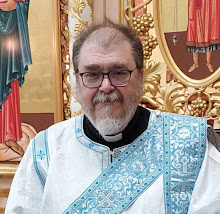Two years ago, I had been approached to full an organist position at a local Roman parish. During the interview, I noted that the first Sunday that I would minister in the parish would be Pentecost, and I asked if they wanted the chant version of Veni Sancte Spiritus, or if there was a preferred hymn setting. The response I received was "O, we don't do that here". And, my immediate inward response was "and I won't minister here".
Parallelling the Byzantine Kontakion, the western Sequence (also called Prose) is an important part of the western spiritual heritage. Originating in the tenth century, or earlier, it is a liturgical hymn of praise, proclaiming the theme of the feast, sung between the Alleluia and the Gospel (the Novus Ordo places it before the Alleluia). By the time of the Council of Trent in the 16th century, there were literally hundreds of sequences.
Trent cut back the number of sequences to 4
- Victimae Paschali Laudes, for Easter
- Veni Sancte Spiritus, for Pentecost
- Lauda Sion Salvatorem, for Corpus Christi
- Dies Irae, for the Requiem
Vatican II eliminated Dies Irae as a Mass sequence and added it to the Office as an optional hymn.
Before Vatican II, some of the Orders retained special sequences. The Dominican Gradual has sequences for St. Dominic, St. Francis, and Christmas; the Benedictine appendix to the current Roman Gradual has a sequence for St Benedict.
One can argue the wisdom of eliminating the vast majority of sequences. But the fact that these few remain make them all the more important, all the more precious. They are part of the liturgical patrimony of the west, and ought not be discarded, but cherished.
And, maybe, just maybe, would should think about singing the sequences devotionally, or perhaps before Mass. After all, Trent didn't forbid them, just took them out of their place after the Alleluia.


No comments:
Post a Comment